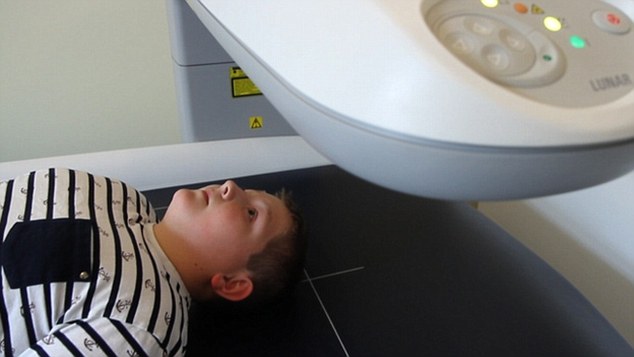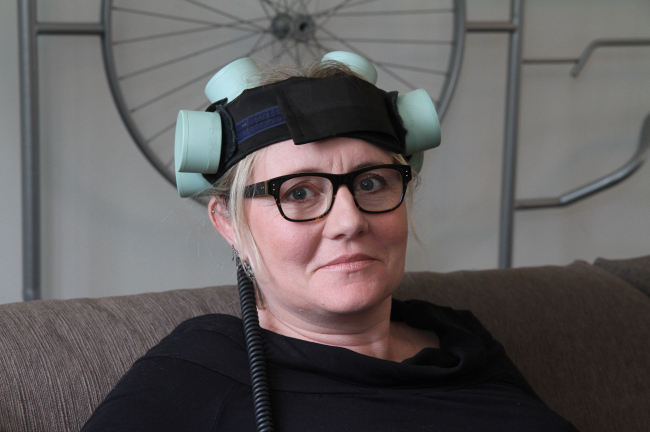Found the Cure For Childhood Obesity
Danish paediatrician Dr Jens Christian Holm claim to have cured childhood obesity by following a set of basic rules which include no second helpings of food within 20 minutes of eating. Snacks and sweets are rationed to once a week, fruit juice or fizzy drinks once a month and children must walk or cycle to school. The rules also state that pots are kept in the kitchen at mealtimes - rather than on the table to avoid the temptation of second helpings.
The rules have been drawn up by Danish paediatrician Dr Jens Christian Holm, who claims to have helped 1,300 overweight and obese children. He first began testing his set of rules –The Children’s Obesity Clinic’s Treatment (TCOCT) protocol – in the town of Holbaek, 40 miles from Copenhagen, in 2008. But it has been so successful it has been adopted by eight other districts across the country. Dr Holm says it has been so successful across Denmark that other countries such as Britain should follow suit. Figures published by the NHS next month are expected to show that one in three children are overweight or obese by the time they leave primary school. And only today a report warned that growing numbers of teenagers had become so obese they needed weight loss surgery. But Dr Holm believes his solution is far simpler and cheaper than gastric band or bypass operations, which cost the NHS up to £15,000 a time. It hinges on sticking to between 15 to 20 rules aimed at improving the diet, boosting exercise levels and slashing time spent sat down. One states that children must feel satisfied after each meal so they aren’t tempted to snack later. But if they are still hungry after their first helping, they must wait at least 20 minutes for seconds as this is how long it takes for the body to feel ‘full’. Others include no television before 5pm and for no more than two hours a day as well as no white bread for lunch. Initially they are admitted to hospital for 24 hours where they undergo tests and scans including measurements of body fat, blood sugar and blood pressure. They also answer a very detailed questionnaire about their diets and lifestyle, with the help of their parents. Doctors then help them draw up a more specific set of rules tailored to their likes, dislikes and routines. These stay in place until the child has reached their target weight. Dr Holms said that of the 1,900 patients who have been put on the program since its launch, some 70 per cent have lost significant amounts of weight and kept it off for at least four years. He said: ‘In general, obese children are neglected. They are often lonely and many of them don't participate in activities with their peers. They lack self-confidence. ‘With this scheme there is a real hope they can lose weight and have a good quality of life. ‘We create the environment and tools with which the children and their families can overcome this.’ Dr Holm says that, unless children change these habits, the ‘obesity will persist'. ‘People will get very frustrated, sad, and they will be lost,' he said. ‘Their entire life needs to be changed, because they tend to be lonely, tend to be ashamed of themselves so they need to do this, and to interact with other children in their daily lives.' A report by the National Bariatric Registry – which includes obesity surgeons - today found that 550 men and women under 25 had needed weight-loss surgery. This included 62 under 18s – which it stated was evidence of a ‘clear failure’ of strategies to prevent obesity.
THE 'RULES' TO CURBING OBESITY Under The Children’s Obesity Clinic’s Treatment (TCOCT) protocol, a doctor creates a plan comprising 15-20 components. 1 - No crunchy muesli or fruit yoghurts for breakfast - choosing oatmeal, dark brown bread, meat and fish instead 2 - No fast food or white bread for lunch; choose brown bread, meat, fish and vegetables instead 3 - Portions served up in the kitchen - no pots and pans at the dining table 4 - Plate proportions for dinner should be: half vegetables, a quarter brown rice, pasta or potatoes, and a quarter low fat fish or meat 5 - Wait 20 minutes before having second helpings - this allows time for the body to feel full 6 - Feel satisfied after each meal 7 - Only two pieces of fruit per day 8 - Fast food only once a month 9 - Sweets only once a week 10 - Snack only once a week 11 - Limit juice, iced tea, cocoa, soda or lemonade to once weekly - only half a litre in total 12 - Cycle or walk to school 13 - Organised physical activity eg dancing, handball or gymnastics 14 - Free physical activities like walking/biking after school, walking the dog or trampolining 15 - Screen time (television, computer or tablet) limited to two hours per day 16 - No television/computer access until 5pm 17 - Set a regular, early bedtime Written By Sophie Borland News Retrieved From:
|
|



















